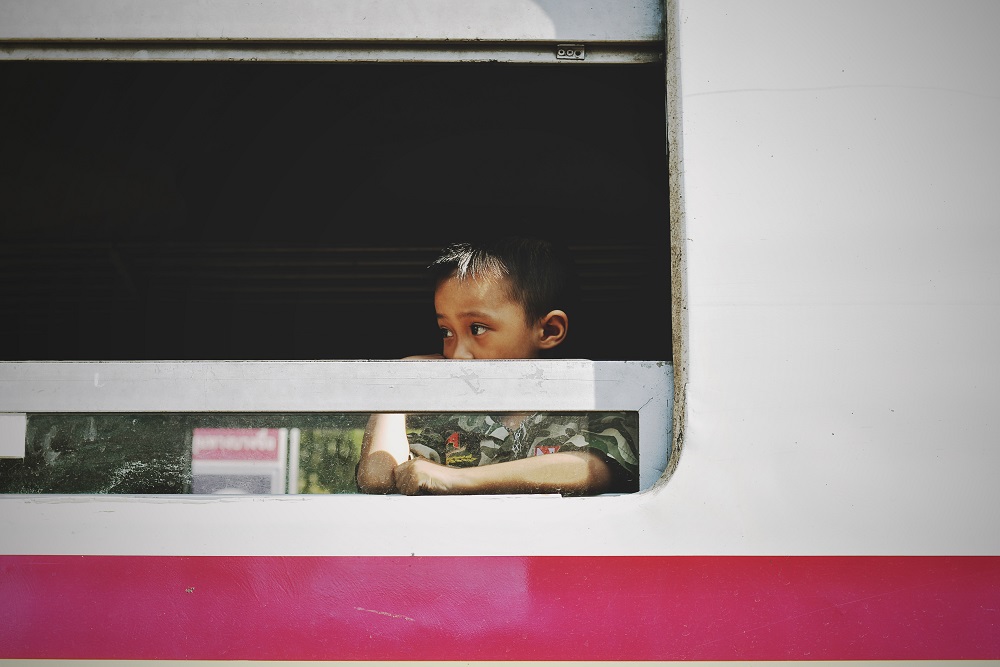Canada Loosens Immigration and Refugee Rules for Venezuelans
New Immigration Rules Introduced by Canada In Response to Venezuelan Political Crisis
As the country of Venezuela continues to sink under a crippling political and economic crisis, Canada is creating an easier pathway for Venezuelan immigrants and refugees seeking an escape to a better life.
Under new rules recently announced by Canada’s federal government, failed asylum claimants from Venezuela can now challenge deportation orders due to the high risk of being sent home. This will only apply to Venezuelans whose claims were rejected prior to Aug. 19.
Going forward, any further changes to the conditions in Venezuela will be considered when reviewing all future refugee claims.
These new rules will also allow Venezuelan passport holders to either travel to or remain in Canada if their passport expired less than five years ago or will soon expire.
They will also be able to use these expired passports to apply for a visitor visa, a study or work permit, or permanent residence.
“Canada remains deeply concerned by the critical and worsening political and economic situation in Venezuela,” said Ahmed Hussen, Canada’s Minister of Immigration, Refugees and Citizenship in a press release.
The once wealthy, thriving nation of Venezuela has plunged into a severe economic crisis in recent years, leading to violent protests and extreme poverty.
Other side effects of the crisis include hyperinflation leading to massive food and water shortages, lack of medical services, widespread power outages, and high levels of crime.
The situation has reached such a critical point that the number of Venezuelan refugees is estimated to reach 8 million by the end of 2020 and surpass Syria as the world’s largest group of refugees from a particular nation.
With so many people attempting to flee at rapid rates, establishing identity and verifying documents has become a challenge, especially since Venezuelan consulates either cannot or will not replace expired documents.
Furthermore, Venezuelans who came to Canada on a student visa have been held back from continuing their studies or graduating because they've been unable to update their documents. And others with permanent residence status have been unable to obtain complete citizenship due to the fact that their Venezuelan documents are no longer valid.
The newly loosened rules will help to address these issues directly.
Study Reveals Surge in Immigrant and Refugee Homeless Population
Homelessness Among Refugees and Newcomers Becomes A Growing Problem in Canada
Newly released government data is shedding light on the growing problem of homelessness amongst immigrants and refugees, revealing that a shockingly high number of newcomers find themselves living in homeless shelters after arriving in Canada.
The two reports released by Employment and Social Development Canada analyzed federal data on homeless shelter users between 2005 and 2016 and discovered a dramatic increase in refugees using shelters during this 11-year period.
According to the reports, 2,000 refugees were sleeping in shelters in 2016, which is double what was reported two years prior. This does not include facilities designated specifically for refugees.
A separate federal study recently released also tracked homelessness in 61 communities across Canada and confirmed a trend of homelessness among newcomers.
This study found that of all Canadians who identified as homeless in 2018, 14 per cent were newcomers to Canada. Among this group, eight per cent had claimed to be immigrants, while three per cent identified as refugees and four per cent as asylum claimants.
Tim Richter, president of the Canadian Alliance to End Homelessness, told the Canadian Press that he believes the reason why so many refugees are turning to homeless shelters is the lack of housing capacity in areas where the majority refugees are settling. These areas include major cities such as Toronto and Montreal that are known for lack of affordable rental housing.
In fact, back in late 2018, the city of Toronto estimated that around 40 per cent of people using its shelters were refugees or asylum claimants. As a result, other cities in the province of Ontario were asked to help relieve some of the stress on Toronto's shelter system by taking in homeless refugees.
Even smaller cities like Ottawa and Winnipeg, are also experiencing a high homeless newcomer population, with around one quarter of Ottawa’s homeless population reported to be immigrants or refugees in late 2018.
However, Richter also told the Canadian Press that he remains hopeful that things will improve, as the figures from the national shelter study do show that homelessness overall is decreasing, and many cities are taking steps towards improving the issue.
"We're seeing that it is possible, and we know how to do it, it's just a matter of getting on with it," Richter said. "I'm hopeful that we are going to see, now, consistent and focused trends going in the opposite direction."
Canadian Immigration System Praised for Recruitment of Foreign Workers
International Agency Names Canada a Benchmark for Immigration Systems Worldwide
Canada’s economic immigration system is being praised as one of the most successful in the world following the release of a new report from the Organization for Economic Co-operation and Development (OECD).
According to the report, Canada’s economic immigration system is the “most carefully designed” amongst OECD’s 36 member countries and serves as a benchmark for countries looking to improve their own immigration systems.
OECD countries represent around 80 percent of world trade and investment.
The report also commended Canada for being a leader in offering services that provide solutions for immigrant health and housing issues, and help those who immigrate to Canada find jobs.
However, the report mentioned that currently, only 8.5 per cent of eligible economic immigrants actually access these resources.
When putting together the report, OECD looked at how Canada recruits foreign labour from its Express Entry program, which essentially invites skilled workers to apply for permanent residence in Canada.
Around 85,000 economic immigrants come to Canada through the Express Entry program every year.
Changes made by the Liberal government since being elected in 2015 were singled out as a factor in helping align labour market requirements with program applicants.
These changes include reducing the number of points an applicant receives if they get a job offer before being accepted.
Despite the immense positive feedback outlined in the report, OECD did find that there remain some areas where Canada can improve, and recommended that Canada:
- Streamline, simplify and standardize its ranking system for skilled workers rather than having separate “pathways” to entry;
- Dissolve the Federal Skilled Trades Program;
- Enhance information and harmonization around the credential recognition process;
- Encourage settlement outside the major urban areas;
- Build on the success of rural immigration pilots in Atlantic Canada;
- Introduce a trusted-employer system for companies that hire many employees through the Temporary Foreign Worker Program.
The OECD further criticized that Canada’s screening policy for immigrants could potentially allow for political tinkering, and that too many foreign professional credentials are not being recognized in Canada.
The study also found that there are some other hiccups in the program when it comes to finding candidates for areas with labour shortages.
Despite these flaws, the general consensus from the OECD report was that Canada’s economic immigration system functions exceptionally well, and should be considered a world leader based on how it selects and retains foreign labour and benefits national and regional economies.
Trump to Scrap 20 Day Limit for Detaining Migrant Children
Trump’s Move to Terminate Detention Limits Could See Migrant Families Detained Indefinitely
The Trump administration is looking to abolish a court agreement that set limits on how long migrant children can be detained, replacing it with a new policy that would potentially allow children and families to remain in detention facilities indefinitely.
According to the Washington Post, the new rule would eliminate the current limit of 20 days for the detainment of children. It would also allow the government to make changes to the standard of care afforded to children in immigration detention facilities.
The move still requires approval from a federal judge before it can go into effect, and several advocates have already pledged to challenge it in court.
The district judge in charge of overseeing the Flores agreement has also already rejected requests from the federal government to increase the limit on how many days children can be detained.
Currently, under the Flores agreement established in 1997, the federal government must release any minor from a non-licensed detention facility after 20 days.
For the last 20 years, the agreement provided essential protections for migrant children fleeing violence and persecution, which are now at risk.
Because of this settlement, children entering the US seeking asylum are typically released while their asylum requests make their way through the courts.
But if approved, the new rule would allow the government to hold families in detention facilities until their immigration cases are completed, which could far exceed 20 days.
White House officials have defended Trump’s decision, stating that they are creating a higher set of standards for governing family detention facilities, which will see the facilities regularly audited, and the results of these audits made public.
The new regulation is the latest in a series of controversial efforts by the Trump administration to restrict immigration in response to the growing number of families and unaccompanied minors crossing the US-Mexico border to seek asylum in the US.
Throughout the past several months, the administration has proposed other new policies that would end temporary protected status for migrants from certain countries, fast track deportations, limit avenues to claim asylum and make it more challenging for immigrants to obtain green cards.
Quebec Immigration Plan Hotly Contested by United Nations Agency
UN Agency Urges Quebec To Stop Refugee Restriction Plan
With the amount of displacement around the world reaching devastatingly high levels, the United Nations High Commissioner for Refugees is appealing to the province of Quebec to open its doors and halt plans to restrict the number of refugees it accepts.
Despite the number of refugees fleeing war, persecution, and conflict exceeding 70 million last year — the highest in almost 70 years, the Coalition Avenir Québec government is looking to roll back the number of refugees it accepts to 7,500 this year and maintain this number until 2022.
This is the lowest number of refugees the province has accepted since 2014.
This new restriction on refugees is part of the province’s plan to cut back the number of immigrants accepted into Quebec by 20 percent this year.
If all goes according to plan, the province will decrease the number of immigrants to 40,000 people in 2019 but will slowly increase the number to 52,500 people by 2022.
According to CBC, a representative for the UN agency, Jean-Nicolas Beuze, recently spoke in front of Quebec’s National Assembly during a hearing to study the province’s immigration plan and asserted that Quebec Immigration Minister Simon Jolin-Barrette appeared to consider asylum seekers a “burden” on Quebec society.
Beuze argued that admitting more refugees is “not only good for the refugees. But it's also good for the province and for the country because they contribute to the society — economically and socially.”
He also referenced research which states that refugees are more likely to stay in Quebec than newcomers who arrive under the province’s economic immigration stream and stated that refugees are more eager to learn French and more likely to settle in the less populated regions outside Montreal.
Jolin-Barrette, who is presiding over the immigration plan hearings, argued against Beuze's testimony, and rejected the implication that the Quebec provincial government views immigrants for their economic benefits, and categorizes some as "good" immigrants and others "not as good."
Jolin-Barrette said he rejects this logic, adding that Quebec has spent millions of dollars to help asylum seekers and refugees settle in the province.
Following the hearing, CBC reported that Jolin-Barrette told reporters that he wanted to be clear about the fact that "Quebec society has always done what it has to do for refugees and asylum seekers, and we will continue to do that."





